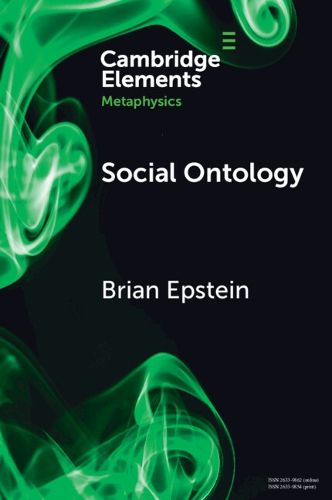Readings Newsletter
Become a Readings Member to make your shopping experience even easier.
Sign in or sign up for free!
You’re not far away from qualifying for FREE standard shipping within Australia
You’ve qualified for FREE standard shipping within Australia
The cart is loading…






Social ontology is the study of the nature of the social world. This Element aims to provide an overview of this burgeoning field, and also to map the questions that theories in social ontology address. When we encounter a theory of some social thing - groups, law, gender, and so on -how are we to read it? What classes of theories have been explored and abandoned, and what classes are new and promising? The Element distinguishes theories of social construction from theories that characterize the products of social construction. For each, the Element works through a 'toy' theory and then discusses features that more realistic theories ought to include. Three running examples are discussed throughout the Element: (1) property, or ownership; (2) race, or racialized kinds; (3) collective attitudes (i.e., beliefs, desires, knowledge, intentions, etc., of groups and organizations). This title is also available as Open Access on Cambridge Core.
$9.00 standard shipping within Australia
FREE standard shipping within Australia for orders over $100.00
Express & International shipping calculated at checkout
Stock availability can be subject to change without notice. We recommend calling the shop or contacting our online team to check availability of low stock items. Please see our Shopping Online page for more details.
Social ontology is the study of the nature of the social world. This Element aims to provide an overview of this burgeoning field, and also to map the questions that theories in social ontology address. When we encounter a theory of some social thing - groups, law, gender, and so on -how are we to read it? What classes of theories have been explored and abandoned, and what classes are new and promising? The Element distinguishes theories of social construction from theories that characterize the products of social construction. For each, the Element works through a 'toy' theory and then discusses features that more realistic theories ought to include. Three running examples are discussed throughout the Element: (1) property, or ownership; (2) race, or racialized kinds; (3) collective attitudes (i.e., beliefs, desires, knowledge, intentions, etc., of groups and organizations). This title is also available as Open Access on Cambridge Core.